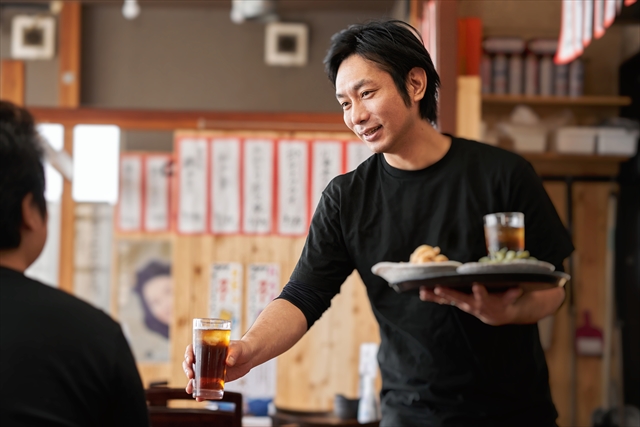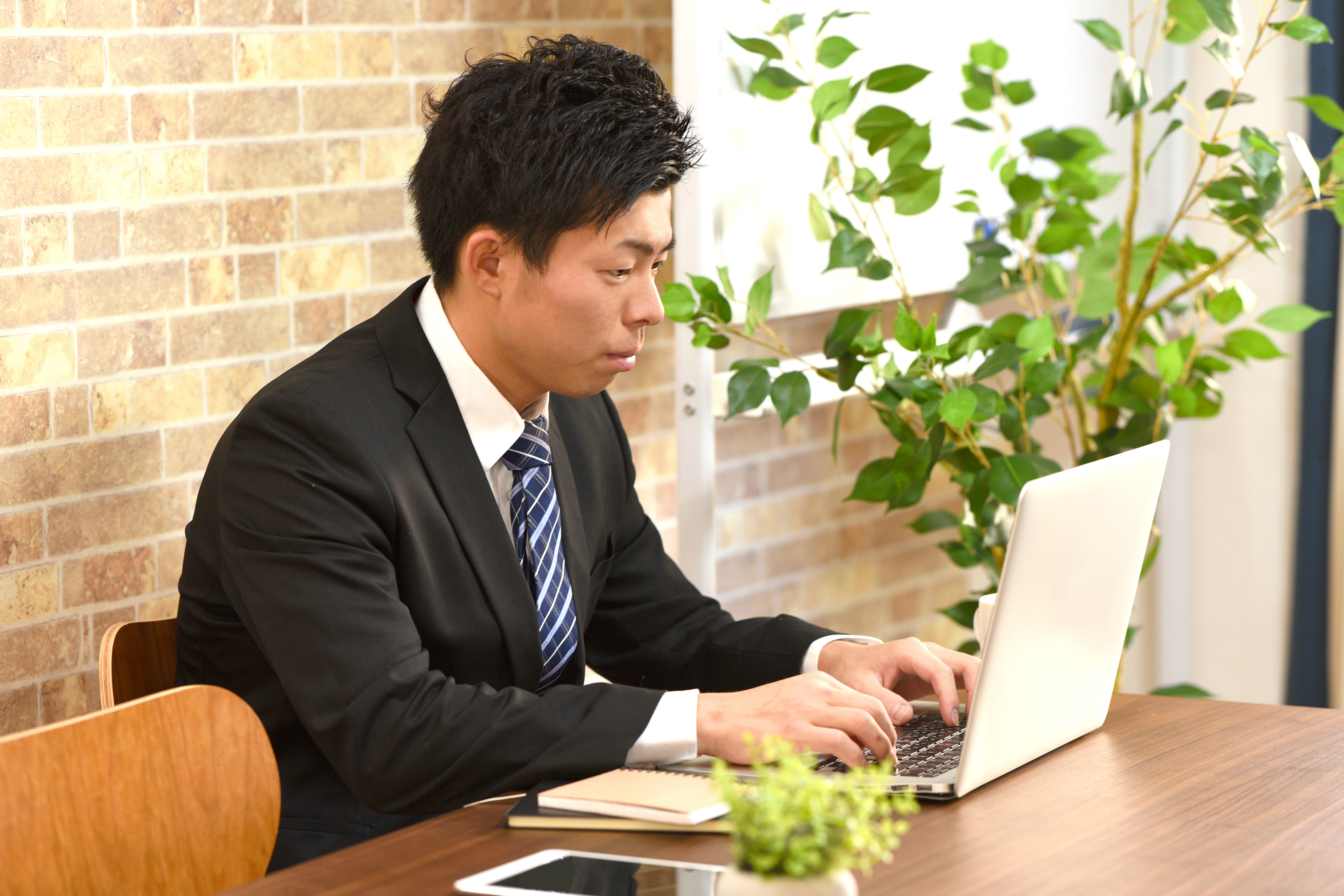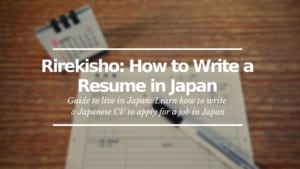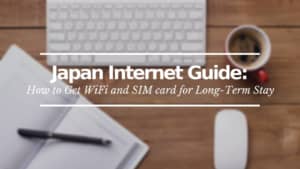4 Job Contract Types in Japan
Guide to live in Japan: How to find a job in Japan
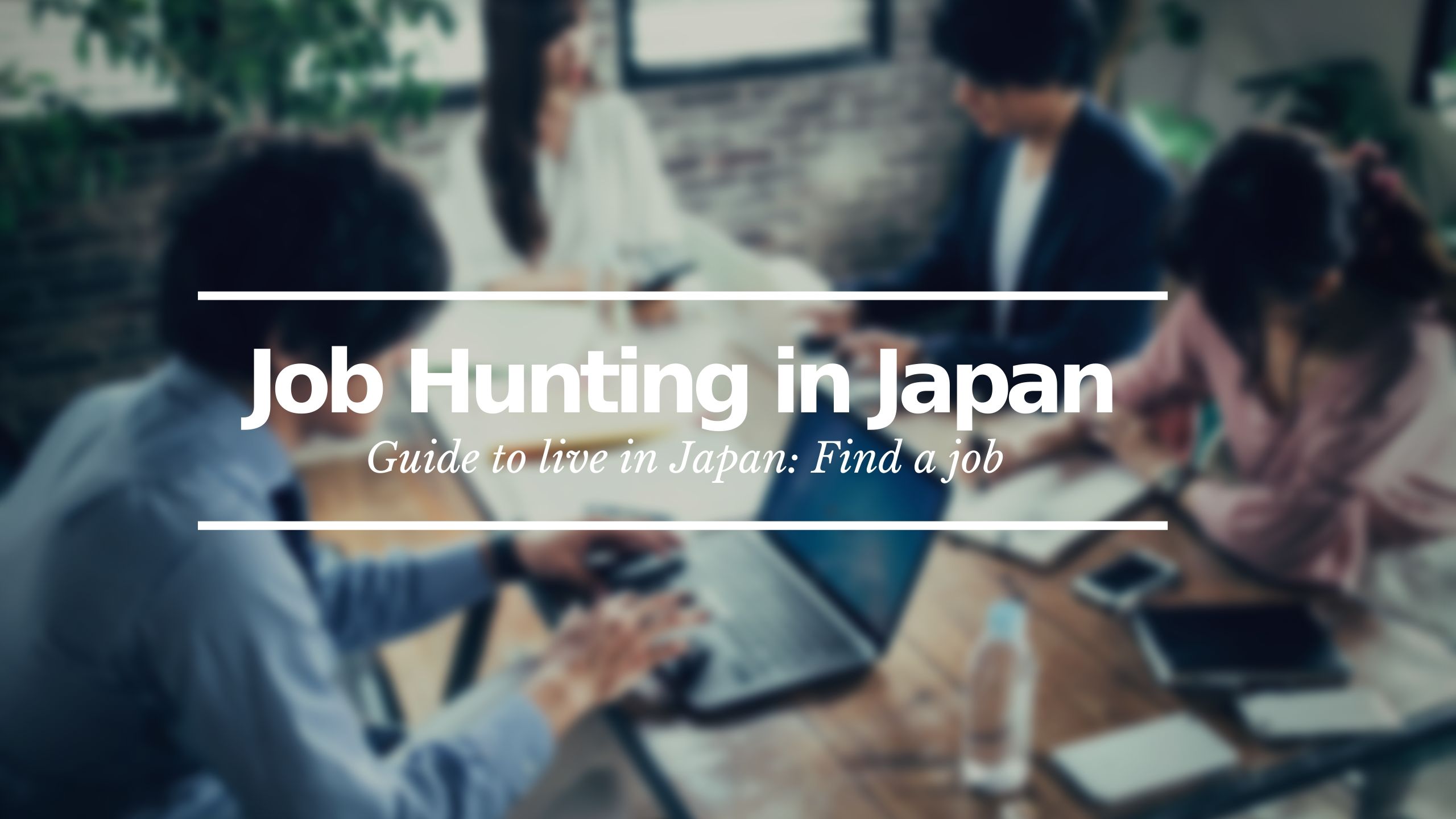
One of the things people ask me the most is about how to get a job in Japan or if it is easy to get a job. The truth is that I don’t think there is a single correct answer to those questions, since it depends a lot on each person, their situation and their experience. Sometimes it’s also about being at the right time in the right place. I have acquaintances who have taken months to get a job or even some who have not. And others for whom getting a job was very easy. In this article, I would like to give you some tips to help you in your job search.
Contract types in Japan
To start, I would like to introduce to you the different types of contracts and work that exist in Japan since I think it’s the first thing to know. So you can know what type of job best suits your profile (for example, if you are a student it would be a part-time job) and when they give you a job offer you can know what pros and cons it has depended on the type of contract since each one has different conditions.
The different contract types in Japan are the following:
Part-time Job
Part-time job or arubaito (アルバイト) in Japanese (sometimes abbreviated as ‘baito’) are jobs where you are paid for an hourly wage. The people who usually do these jobs are students who want to earn some money for their expenses, foreigners who are studying or having a working holiday, housewives who left work when their first child was born and now they are returning to work, retired and people in general who do not want to be tied to a company and prefer to work this way. Generally speaking, arubaito jobs offer few hours. It’s rare that someone does a full-time job being arubaito. Although some companies do it with some of their employees, it’s not the most common.
The advantage of part-time jobs and the reason some people prefer it to a regular job is that it gives you more freedom. Normally you can choose which days a week and how many hours you want to work, or you can also tell them what days you don’t want to work and which ones you don’t care and let them put you on the days that are better for them (they will never put you in the days you said you don’t want to work). The downside is that you lose some rights. For example, if one day you get sick and don’t go, you don’t receive any money. You also usually don’t have health insurance for example, but even if many people don’t know this, as part-time job you have the right to paid vacations (the number of days depends on the hours you have worked, etc).
Also, you have that in Japan there is a minimum hourly wage that varies according to each city. If you get paid below that salary, it’s illegal. I recommend informing you what is the minimum salary in the city where you are looking for a job. And all the hours you work after 10 at night are paid 25% more. If for example you are in a restaurant and you do from 5 pm to 11 pm, the time you do from 10 to 11 you should be paid 25% more.
In addition to paying for your hours worked, companies also often pay for transportation fees from your home to work (up to a limit). If they don’t pay for your transportation, it’s probably a bad company. And if you are in a place like a restaurant or a cafe, they also usually offer ‘makanai’, or food for workers (in some places you have to pay a small amount, like 100 yen, for the lunch, but is still cheaper than have lunch outside).
Temporary Employees
Temporary staff or Haken-shain (派遣 ・はけんしゃいん) in Japanese (abbreviated as haken) are employees that aren’t directly hired by the company they work for but by a dispatching agency. There are two types of haken.
Some haken employees have a temporary one or two-day jobs at different places. One day they may be working in a supermarket, the other day in a restaurant, etc. They don’t have a steady job. If any of the companies they go to doesn’t like the way they work, they ask the dispatching agency not to send that particular person back in the future. But on the opposite, if the company likes that person, they usually ask to the dispatching agency to to send that person more time. If the company really like it how this person works, sometimes they can offer a direct contract rather than through the dispatching agency.
Other haken have ‘permanent’ jobs at the company they work for. You can work full-time shifts as a haken. But they can only work a maximum of three years in the same company. After those three years, the company must decide if they want to hire them directly or not. If the company decides not to hire them directly, the dispatching agency will offer them a new job at another company.
Despite the fact that temporary staff can stay up to three years in the same company, contracts are usually temporary, at most three months (sometimes six). When those three months are about to end, the dispatching agency talks to the company and the employee, and if both agree to continue, a new three-month contract is made. In this way, companies can test whether or not they like that person, and if they don’t, they simply don’t renew the contract (as I said that companies fire their workers is frowned upon). Some companies hire new people first as a haken or part-time and after a few months of testing if they really like that person they offer a regular contract with them.
Regarding salary, temporary staff has a system quite similar to part-time employees but slightly better. They’re paid for hourly wage and transportation costs. But the other conditions, such as paid vacations or medical and employment insurance, vary depending on the dispatching agency and if they have permanent work or they work in a different place every day. Usually, they don’t have bonuses. But some Japanese prefer work as a haken because since you are for hourly wage usually you don’t have to work overtime hours (Japan is famous for having a lot of work overtime hours). Also, the responsibility is much lighter.
Contract Employees
A keiyaku-shain (契約社員 ・けいやくしゃいん) is a normal contract employee. Contracts are generally for a short and specified term, usually for one year but there are also three-or six-month contracts. Although some Japanese don’t like to be keiyaku-shain because it doesn’t give them security, the truth is that in most cases the company renews the contract and they have stability. There is always the fear that in the next renewal the company will decide not to renew the contract.
This could be the case in the past, where many employers preferred to hire contract employees because they didn’t have to give to contract employees the same benefits as permanent employees and they could keep renewing their contracts for years and then just terminate them whenever they wanted.
However, lately, the Japanese Courts decided that long-term contract employees had the same rights as permanent employees, including insurance packages (health insurance, social insurance, paid holidays, paid leave, etc) and the right not to be fired without reason. In Japan employees are highly protected by law, and it’s very difficult for companies to fire permanent employees. With contract employees, companies didn’t have to worry about that because they just didn’t renew the contract. But now, if an employee has been renewed for several years, the company must have a really good reason for not renewing the contract. This works in both directions. The employee has no right to break the contract before the agreed time (three months, one year, etc.) except for special circumstances.
Usually, contract employees are paid less than the permanent employees but not always. Salary is a fixed monthly amount, although sometimes it may be based on daily wage or even hourly wages. As with most jobs in Japan (unless it’s a really bad black company), transportation expenses are included in addition to the salary. Then depending on the company, bonuses are paid or not (in some companies the bonus may be less than the bonus for the permanent employee). Other benefits are also depending on the company.
Permanent Employees
Finally, the holy grail that most Japanese wanted and the most difficult to achieve nowadays: permanent employee or seishain (正社員・せいしゃいん)
Being seishain gives you stability and better working conditions. After World War II, Japan suffered something called “The Economic Miracle”, as they went from being in a very bad economic situation to become the second world power. There was so much work, it was hard for companies to retain talented people. So they started offering very good working conditions and stability to attract employees and make sure they stayed in the company. The conditions usually include one or two bonuses a year and an increased wage each year if you do a good job. So in Japan, they know that even if sometimes the starting salary is not very high, over the years it will go up if they try hard. There are also high chances of promoting. In Japan, promotions are usually more for seniority than merit.
The negative part of this type of contract for companies is that if later the person doesn’t work as expected, it’s lazy or they don’t like how he/she works, it’s very difficult to fire that worker since, as I have said, Japanese law is really protective with employees.
The negative part for employees is that they are expected to do many unpaid overtime hours and to give almost everything for the company and to put the company above anything else (even your family or your health). It’s also common in many companies to be socially obliged to attend all the company drinking parties, called nomikai in Japanese. But if you don’t do all those extra hours and don’t attend company parties, you know that you will never be promoted or you will do it much later than the others. Actually, because overwork and pressure has caused many Japanese to commit suicide, the government is trying to get companies to cut their overtime.
I recommend you to go very carefully and select the company carefully since there are companies known as ‘black company’ due to the enormous amount of overtime and pressure suffered by their employees, sometimes reaching workplace harassment (know that in that case, there are official agencies to help you with the company).
Job Hunting in Japan
For Japanese people, the job hunting is known as shuukatsu (就活). But the job hunting works different in Japan, since the country has its own peculiar system and a very marked process that I have not seen in other countries. The most part of Japanese university students already has the job decided before graduation, sometimes even a year earlier. In Japan, school courses start in April and end in January / February. That’s also the case at universities. When they’re in their third year (or sometimes even in the second year), Japanese university students start looking for work by the time they graduate the following year. Students from top universities (Todai, Waseda, Keio, Meiji, etc.) and some of the luckier ones tend to be hired quickly, and months before graduation they already know which company they will work for. But for other students, the process is longer and more complicated, and therefore they start early. To get a job in Japan you usually have to pass a minimum of three interviews (sometimes more). There are people who pass the first two interviews, and fall in the third and have to start again. And in some cases, it is so several times. So they do interviews at different companies until they get one that decides to hire them.
So in Japan, April is the month when many companies receive new employees. They all start on the same day. In most countries, companies are publishing offers based on their needs, but in Japan, this is not always the case. Therefore, there is usually a greater offer of jobs in the months leading up to April.
But this doesn’t always work that way with foreigners. This is the system for the Japanese, and if there have been cases of foreigners who have been hired to start in April. But I think sometimes it can be a mistake to try to imitate the Japanese students. In general, companies looking for a foreign profile don’t follow these rules because they know that don’t work. So although it’s a fact to keep in mind, don’t focus only on that and also look for work whatever the month. You’re probably never going to win by competing for the same job against a Japanese.
I hope this information can be useful and help you! In the following article, we are introducing services to find jobs in Japan.
▶ Best 9 Services to Find a Job in Japan
Also, the following is an article introducing about WeXpats Jobs which is the largest job-hunting website specially made for foreigners.
▶ WeXpats Jobs: Job Search Website For Foreigners in Japan
Or, if you’re interested in checking out other job-hunting websites, check out this article!
▶ 5 Best Job Hunting Websites in Japan
▽Recommended for you▽
▽Related Articles ▽
▼Editors’ Picks▼
Written by
From Barcelona to Tokyo. Coffee & Adventure lover.
I started to like Japan because of the anime, music and dramas, but after my first trip to the country I found what I love the most: traveling around, the culture and history. I have travelled a lot in Japan, but I still have many places to discover that I want to share with you. Let’s discover Japan together!
Also, as a foreigner living in Japan for over 6 years I understand what kind of things are difficult when you move here and I want to help other people in the same situation that I have in the past.





